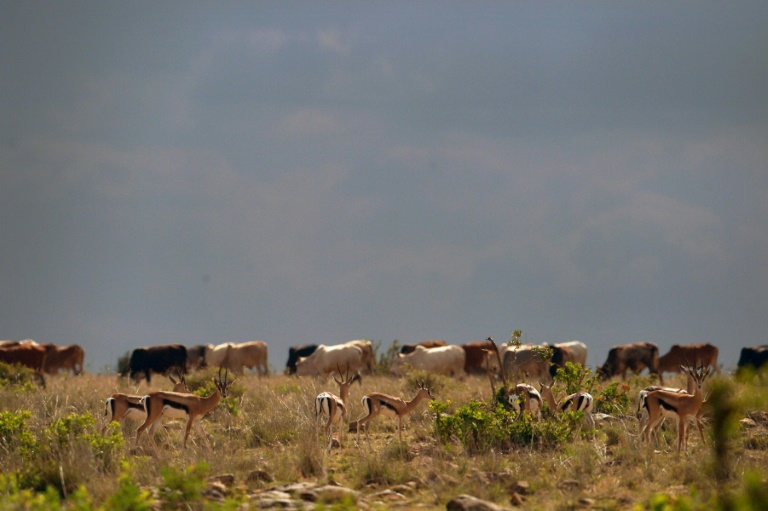
Raids have become common in parts of Kenya in recent months by
pastoralists invading private land, raiding homes and driving livestock
into farms.
Footsteps came first, then unfamiliar voices, the smell of cow dung and the kicking in of the front door.
Suddenly awake, John Mbogo wrapped his
11-year-old daughter Tabitha in his arms and rolled under the bed. His
wife, Anne, crawled next to them, eyes wide.
Torchlight fell on the now empty beds and they saw naked legs smeared in manure, a “shuka” blanket rolled at the waist and the muzzle of a gun.
“There was nothing I could do but hide,” said John, recounting the June invasion by armed herders, dressed for battle, at their small family compound in Kamwenje, a mostly ethnic Kikuyu settlement in Laikipia, high on the eastern rim of Kenya’s Rift Valley. More pics after cut....
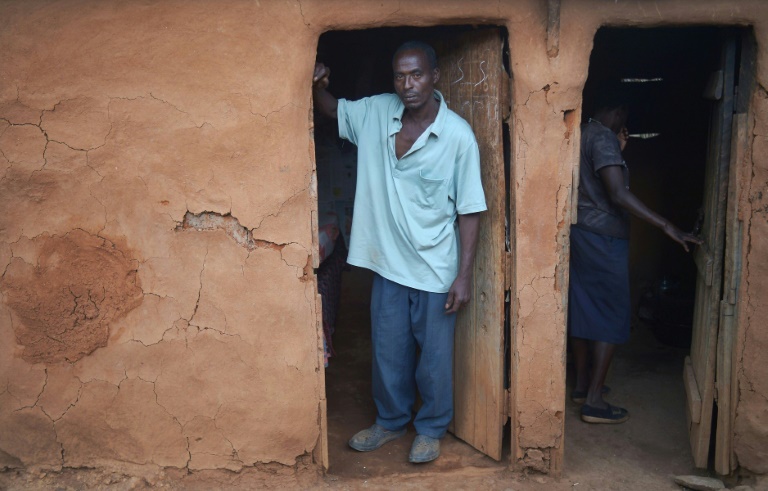
Such raids have become common in recent months in the counties of Laikipia and neighbouring Baringo, with pastoralists invading private land, raiding homes, burning property and driving livestock into farms.
But where the government blames bandits, victims see political intrigue.
Kenyans vote in a general election on August 8. The unrest echoes the politically motivated ethnic violence that has prefaced almost every election since multiparty politics was introduced a quarter of a century ago.
Since voting in Kenya tends to follow ethnic lines, evicting different tribes so that another can dominate a constituency is a pragmatic political strategy.
“They want to drive us away so that they can take over our land,” says John, who has farmed a vivid green field of maize in Kamwenje since 1997.
His family’s clothes, food and possessions were stolen during the attack, but others have suffered worse: neighbours have been raped and shot. Some have already fled.
– ‘Politics is fuel of chaos’ –
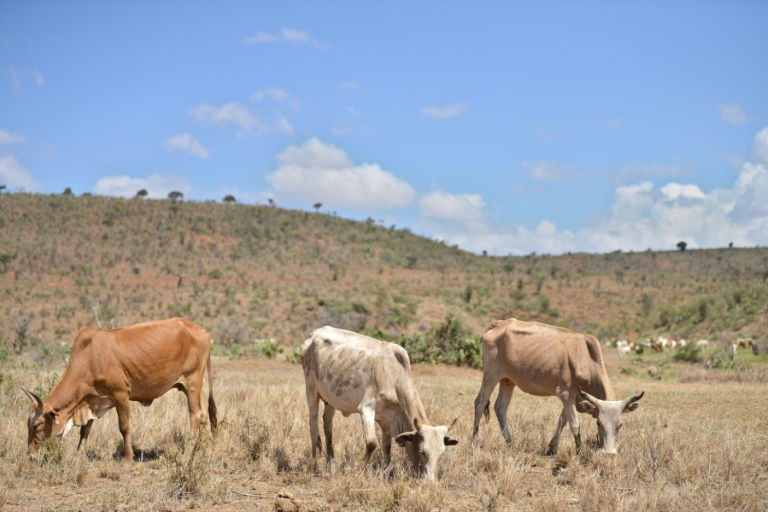
The raiders come from the Pokot tribe, pastoralists for whom cows are at the heart of social life. Cattle raids serve as a test of manhood as well as a way to get rich and gain enough cows to pay for a wife.
The easy availability of illegal weapons means that cattle raiding has grown more violent, while poor rains and large herds prompt pastoralists to roam further in search of adequate pasture.
But the spike in attacks ahead of elections and their brutality has locals convinced that grazing is not the main motive.
“This is not about pasture. This is politics,” says Paul Njoroge, a 53-year-old father of four, farmer, paralegal and Kikuyu community leader.
“The motive is to evict the farmers and own everything. Politics is the fuel of this chaos.”
Njoroge has lived and farmed on a ridge above Kamwenje since 1983. Currently, he sleeps alone at night, his family, like others, has become what he calls “day scholars”: working the farm by day but staying with neighbours at night where they feel safer, a few miles further from the county boundary.
Residents say that barely a night goes by without gunfire, an ambush or a home invasion.
On worn sheets of folded notepaper Njoroge keeps a running tally of murders, rapes and thefts. So far, Njoroge said, more than 40 families have chosen to leave and he wonders how much longer the rest of them will hold out.
The future Njoroge fears can be found 28 kilometres (17 miles) due west and 1,000 metres below Kamwenje, deep in the belly of the Rift Valley, in Eldume, a forlorn settlement of hundreds of stretched tarp tents.
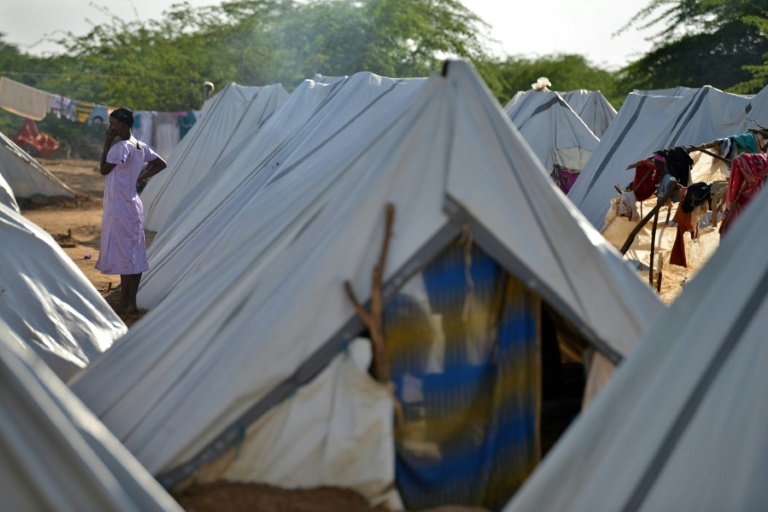
The more than 700 people living here are the surviving ethnic Ilchamus population of the nearby village of Mukutani.
– ‘Slaughtered like goats’ –
They fled after an attack by the Pokot in mid-March in which nine of their people died — a revenge raid of extraordinary cruelty that terrorised the whole community into abandoning their homes.
Queen Siambui, 22, lost her younger sister, Janet, who was murdered as she sheltered with her daughters, five-year-old Nasinya and three-year-old Vicki. Siambui wept as she recounted the attack: Janet was shot in the chest and then she and her children had their throats slit.
“They slaughtered the women and children like goats,” said Benjamin Lecher, the 45-year-old chief of the Mukutani Ilchamus.
“We left Mukutani because of the attacks by the Pokot community,” he said, sipping tea outside his rough tent as the morning’s heat cranked up.
“We have been evicted and they have occupied our land.”
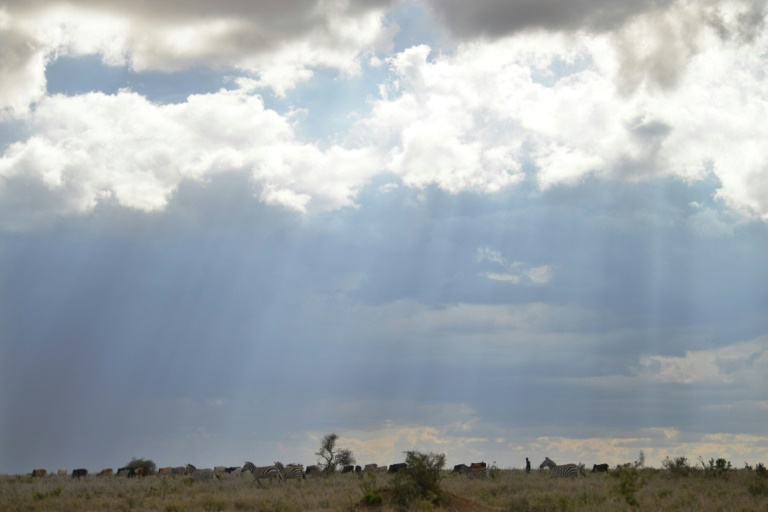
Tit-for-tat cattle raids are common between the Ilchamus and Pokot. Young men known as “morans” are regularly killed in skirmishes, but the deliberate murder of women and children, Lecher said, was different.
“It has become a tribal thing, it’s not banditry. This is not cattle rustling,” Lecher said. “Politics is fuelling this issue, these people are expanding their territory by evicting others.”
In an act of violent gerrymandering, the displacement means Lecher and his people may be unable to vote in August.
Yet the Pokot and their politicians — some of whom hold senior posts in Baringo county, dominated by the ruling party — are not exempt from violence, though widely blamed for it.
A belated government security operation has, they say, disproportionately targeted the Pokot, while at least three prominent Pokot politicians have been killed in recent months.
Their murders, like the crimes in Kamwenje and Mukutani, are unsolved.
Torchlight fell on the now empty beds and they saw naked legs smeared in manure, a “shuka” blanket rolled at the waist and the muzzle of a gun.
“There was nothing I could do but hide,” said John, recounting the June invasion by armed herders, dressed for battle, at their small family compound in Kamwenje, a mostly ethnic Kikuyu settlement in Laikipia, high on the eastern rim of Kenya’s Rift Valley. More pics after cut....

John Mbogo, his wife and daughter hid under the bed
during a June invasion by armed herders at their small family compound
in Laikipia, high on the eastern rim of Kenya’s Rift Valley.
Such raids have become common in recent months in the counties of Laikipia and neighbouring Baringo, with pastoralists invading private land, raiding homes, burning property and driving livestock into farms.
But where the government blames bandits, victims see political intrigue.
Kenyans vote in a general election on August 8. The unrest echoes the politically motivated ethnic violence that has prefaced almost every election since multiparty politics was introduced a quarter of a century ago.
Since voting in Kenya tends to follow ethnic lines, evicting different tribes so that another can dominate a constituency is a pragmatic political strategy.
“They want to drive us away so that they can take over our land,” says John, who has farmed a vivid green field of maize in Kamwenje since 1997.
His family’s clothes, food and possessions were stolen during the attack, but others have suffered worse: neighbours have been raped and shot. Some have already fled.
– ‘Politics is fuel of chaos’ –

Victims of the raids believe politics is the motive, not pasture, as Kenya gears up for an August 8 general election.
The raiders come from the Pokot tribe, pastoralists for whom cows are at the heart of social life. Cattle raids serve as a test of manhood as well as a way to get rich and gain enough cows to pay for a wife.
The easy availability of illegal weapons means that cattle raiding has grown more violent, while poor rains and large herds prompt pastoralists to roam further in search of adequate pasture.
But the spike in attacks ahead of elections and their brutality has locals convinced that grazing is not the main motive.
“This is not about pasture. This is politics,” says Paul Njoroge, a 53-year-old father of four, farmer, paralegal and Kikuyu community leader.
“The motive is to evict the farmers and own everything. Politics is the fuel of this chaos.”
Njoroge has lived and farmed on a ridge above Kamwenje since 1983. Currently, he sleeps alone at night, his family, like others, has become what he calls “day scholars”: working the farm by day but staying with neighbours at night where they feel safer, a few miles further from the county boundary.
Residents say that barely a night goes by without gunfire, an ambush or a home invasion.
On worn sheets of folded notepaper Njoroge keeps a running tally of murders, rapes and thefts. So far, Njoroge said, more than 40 families have chosen to leave and he wonders how much longer the rest of them will hold out.
The future Njoroge fears can be found 28 kilometres (17 miles) due west and 1,000 metres below Kamwenje, deep in the belly of the Rift Valley, in Eldume, a forlorn settlement of hundreds of stretched tarp tents.

More than 700 people have settled in Eldume in tarp tents after fleeing a deadly attack on their nearby village in mid-March.
The more than 700 people living here are the surviving ethnic Ilchamus population of the nearby village of Mukutani.
– ‘Slaughtered like goats’ –
They fled after an attack by the Pokot in mid-March in which nine of their people died — a revenge raid of extraordinary cruelty that terrorised the whole community into abandoning their homes.
Queen Siambui, 22, lost her younger sister, Janet, who was murdered as she sheltered with her daughters, five-year-old Nasinya and three-year-old Vicki. Siambui wept as she recounted the attack: Janet was shot in the chest and then she and her children had their throats slit.
“They slaughtered the women and children like goats,” said Benjamin Lecher, the 45-year-old chief of the Mukutani Ilchamus.
“We left Mukutani because of the attacks by the Pokot community,” he said, sipping tea outside his rough tent as the morning’s heat cranked up.
“We have been evicted and they have occupied our land.”

Voting in Kenya tends to follow ethnic lines so
evicting different tribes so that another can dominate a constituency is
a pragmatic political strategy.
Tit-for-tat cattle raids are common between the Ilchamus and Pokot. Young men known as “morans” are regularly killed in skirmishes, but the deliberate murder of women and children, Lecher said, was different.
“It has become a tribal thing, it’s not banditry. This is not cattle rustling,” Lecher said. “Politics is fuelling this issue, these people are expanding their territory by evicting others.”
In an act of violent gerrymandering, the displacement means Lecher and his people may be unable to vote in August.
Yet the Pokot and their politicians — some of whom hold senior posts in Baringo county, dominated by the ruling party — are not exempt from violence, though widely blamed for it.
A belated government security operation has, they say, disproportionately targeted the Pokot, while at least three prominent Pokot politicians have been killed in recent months.
Their murders, like the crimes in Kamwenje and Mukutani, are unsolved.

No comments:
Post a Comment